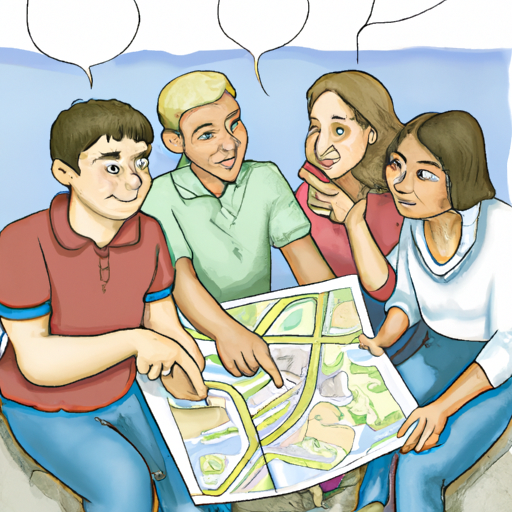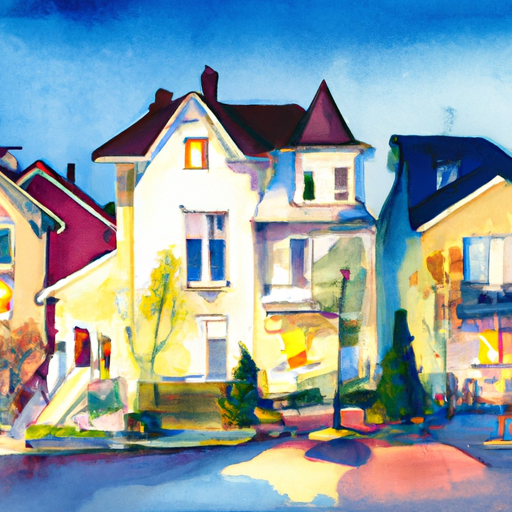This chapter discusses the influence of personal preferences, emotions, social influences, cognitive biases, and subconscious factors in the home buying process. It emphasizes the role of friends, family, society, and cognitive biases in shaping our decisions. It also highlights the importance of safety, security and a sense of belonging in influencing home buying preferences. The psychological journey of buying a home involves a range of emotions, from excitement to anxiety.
Buying a home is an important decision that involves a complex interaction of factors. While many considerations such as location, price and size play an important role in the home buying process, there is a deeper layer of psychology that shapes our choices. Understanding the psychology of home buying can shed light on the underlying motivations and influences that drive our decisions. In this article, we will consider various psychological factors that influence the choice of housing. From personal preferences and social influences to cognitive biases and subconscious desires, we delve into the complex web of psychology that shapes how we choose our homes. Whether you’re a prospective home buyer or just curious about the psychology behind this major life decision, this article will provide valuable insight into the forces at play when it comes to choosing a home. So let’s dive into the fascinating world of home buying psychology and explore what drives our choices.
- 1. “Understanding Emotional Factors: How Personal Preferences Influence Home Buying Decisions”
- 2. “The role of social influences: how friends, family and society influence the choice of housing”
- 3. “Cognitive biases and decision-making: how psychological biases affect the purchase of housing”
- 4. “Revealing the subconscious: how hidden psychological factors influence the preference to buy a home”
- 5. “Navigating the emotional roller coaster: the psychological journey of buying a home”
1. “Understanding Emotional Factors: How Personal Preferences Influence Home Buying Decisions”

When it comes to buying a home, personal preferences play a significant role in influencing a person’s decision. The process of finding and choosing a new home is often driven by emotional factors, as people search for a space that matches their desires, aspirations and sense of identity.
One of the main emotional factors that influence the decision to buy a home is the need to feel a sense of belonging. Humans have an innate desire to connect with their environment and create a place to call home. This need for belonging can manifest itself in many ways, such as choosing a neighborhood that reflects one’s values, finding a home that resonates with a personal aesthetic, or finding a community that offers a sense of camaraderie.
In addition, personal preferences regarding lifestyle and interests greatly influence the choice of housing. For some, proximity to outdoor recreation areas like parks, hiking trails, or beaches is critical. Others may prioritize access to cultural amenities such as museums, theaters or restaurants. The desire to be close to specific schools,
2. “The role of social influences: how friends, family and society influence the choice of housing”

When it comes to home buying choices, the role of social influences cannot be underestimated. Friends, family, and society at large play an important role in shaping our preferences and decisions when it comes to buying a home.
Friends and family often offer valuable advice and recommendations based on their own experiences. They can suggest specific neighborhoods or developments they think are desirable, or offer insights into the pros and cons of certain neighborhoods. These recommendations can greatly influence our perceptions and preferences, as we tend to trust the opinions of those close to us. Additionally, friends and family can have a direct influence on our housing choices through their own involvement in the process. For example, they may provide financial assistance, co-sign a mortgage, or even offer to live with us as roommates to help with expenses.
On the other hand, society plays a wider role in shaping our home buying choices. Cultural norms, trends, and societal expectations are involved in place decisions
3. “Cognitive biases and decision-making: how psychological biases affect the purchase of housing”

When it comes to the home buying process, cognitive biases play a significant role in influencing the decisions people make. These biases are inherent mental shortcuts our brains use to simplify complex decision-making processes. While they can be helpful in some situations, they can also lead us astray and affect our judgment.
One of the common cognitive biases that influence home buying decisions is attachment bias. This bias refers to the tendency to rely heavily on the first piece of information encountered when making a judgment or decision. In the context of buying a home, this can mean that people are paying too much attention to the listing price or the initial offer made by the seller. This could result in you overpaying for the property or missing out on potentially better deals.
Another cognitive bias that comes into play is the availability heuristic. This bias occurs when people make judgments based on how easily examples or cases come to mind. In the context of buying a home, this can mean that people give more
4. “Revealing the subconscious: how hidden psychological factors influence the preference to buy a home”

When it comes to the benefits of buying a home, many factors come into play, some of which are deeply rooted in our subconscious. These hidden psychological factors can significantly influence our decisions, often without us even realizing it.
One of the key subconscious factors driving home buying preferences is our need for security. Our homes are our sanctuaries where we seek refuge from the outside world. As a result, we tend to gravitate towards homes that provide a sense of security. This can manifest itself in different ways, for example, choosing a gated community, a low-crime area or a home with advanced security systems. These preferences may stem from our inner desire to protect ourselves and our loved ones.
Another subconscious factor that influences housing choices is our need for belonging and social acceptance. We are social creatures who crave communication with others. Thus, the desire to fit in and be accepted by our peers often plays an important role in the decision-making process. This can lead to giving preference to specific ones
5. “Navigating the emotional roller coaster: the psychological journey of buying a home”

Navigating the emotional roller coaster: The psychological journey of buying a home
Buying a home is not just a financial transaction; it’s a deeply emotional process that can send potential homeowners on a roller coaster of emotions. From excitement and anticipation to anxiety and uncertainty, the psychological journey of buying a home is a complex and multifaceted experience that often goes beyond practical considerations.
One of the primary emotions experienced when buying a home is excitement. The prospect of owning a home brings with it a sense of success and stability. This is a milestone that is a significant achievement and a symbol of success for many people. The excitement of imagining a future in a place that can be called its own fuel is motivating to find the perfect home.
However, as the process progresses, excitement can quickly give way to anxiety and stress. The sheer magnitude of the financial obligations associated with purchasing a home can be overwhelming. As potential homeowners navigate the complexities of mortgage applications, negotiations and inspections, doubts and
In summary, the psychology of home buying is a complex and multifaceted topic involving a variety of emotional, social, cognitive, and subconscious factors. In this article, we explored how personal preferences, social influences, cognitive biases, and hidden psychological factors play a role in shaping people’s choices when it comes to buying a home. We also delved into the emotional journey that homebuyers often go through, from the initial excitement to the inevitable roller coaster of emotions that come with the decision process. By understanding the psychological factors that drive home buying decisions, both buyers and sellers can make more informed decisions and navigate the process with greater awareness. Ultimately, recognizing and acknowledging the psychological aspects of home buying can lead to greater home buying satisfaction and satisfaction for all parties involved.
 Purex find
Purex find